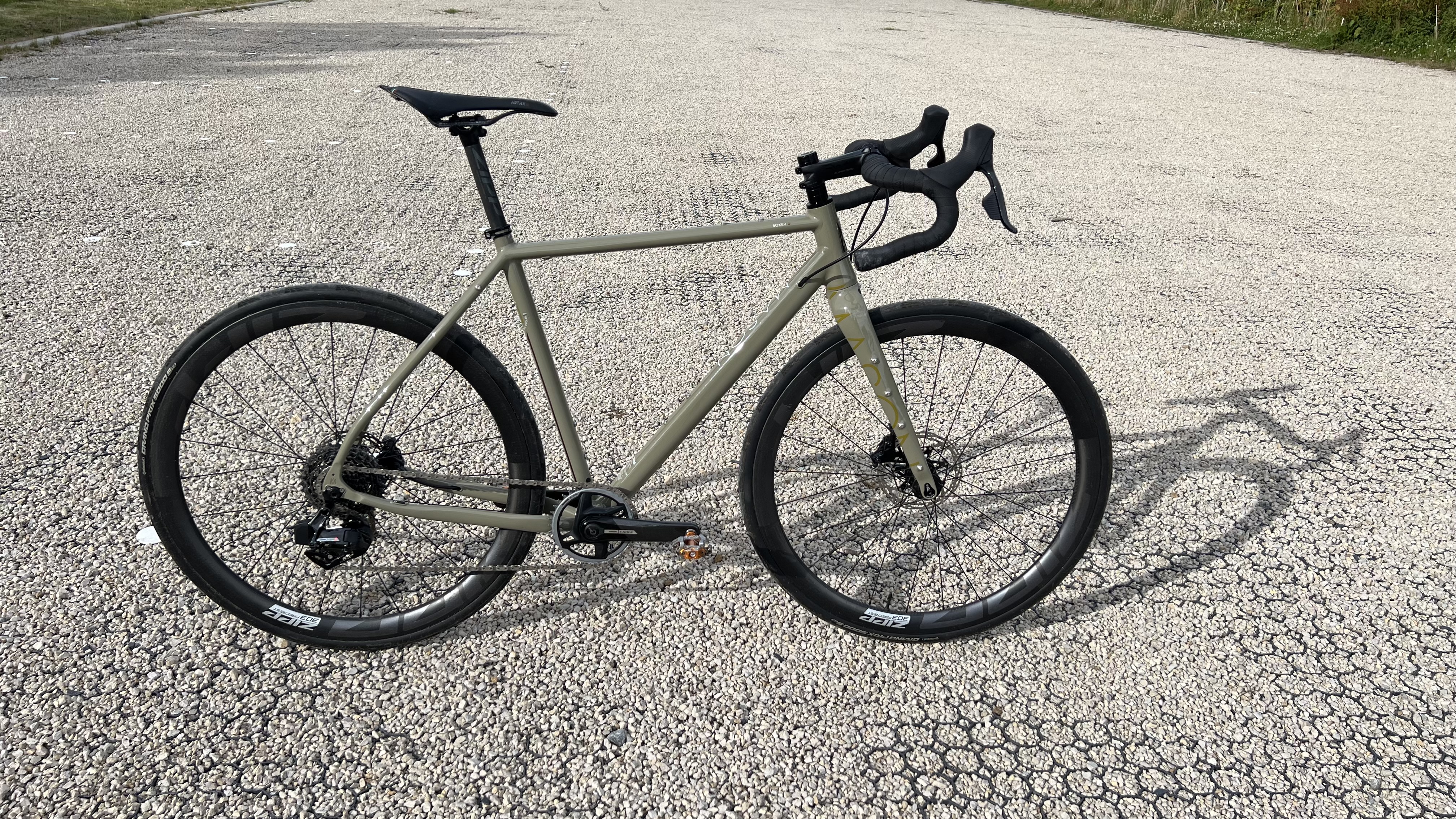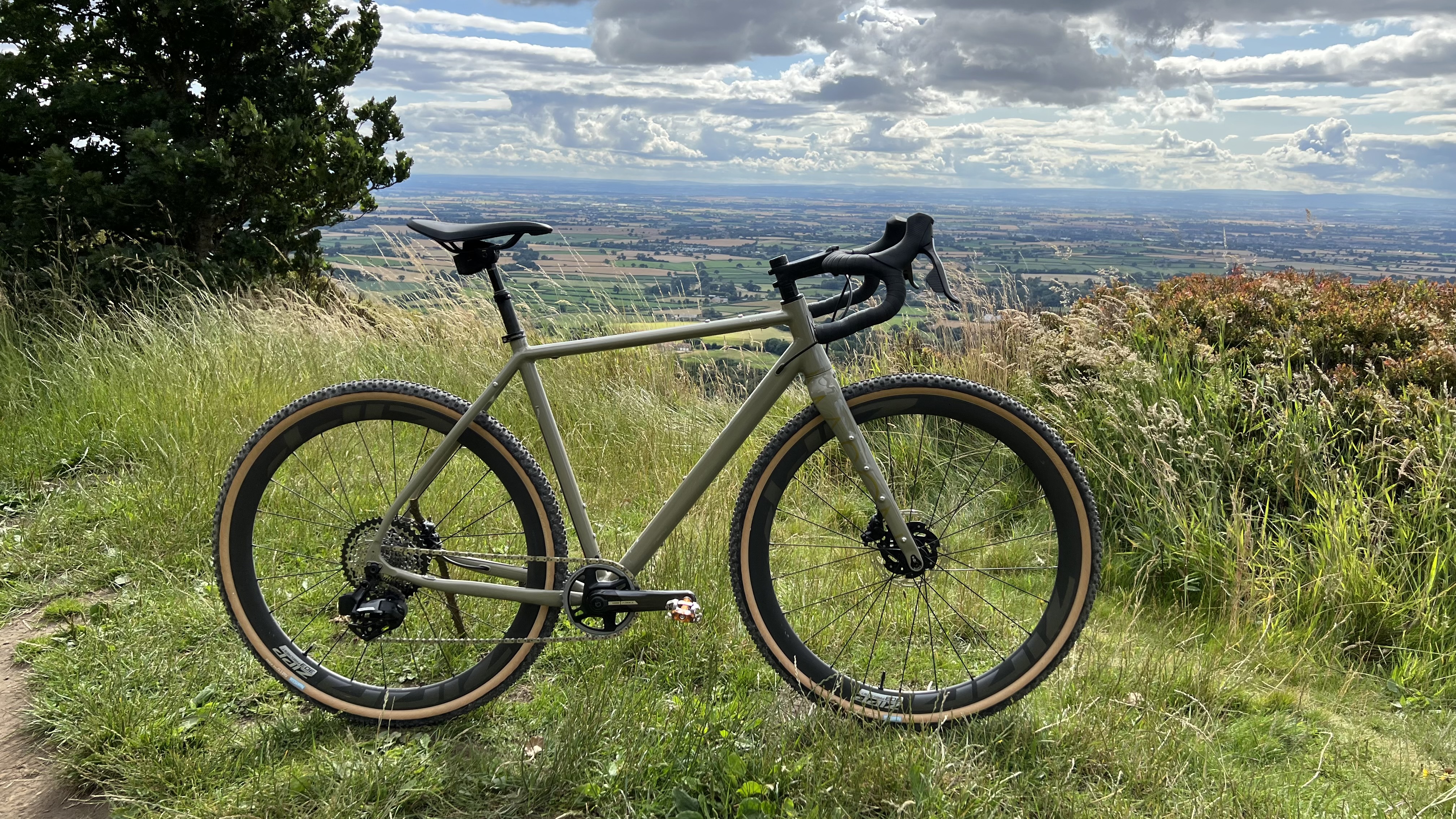
Mason’s Bokeh was one of the original gravel bikes but does the latest 3.0 version bring it bang up to date? And can hand-built custom alloy compete with carbon for all-surface speed? I have been racing across the Yorkshire Dales and Moors to find out.
Design and geometry
The Bokeh 3.0 mainframe core with its custom shaped and progressive wall thickness Dedacciai tubing hasn’t changed significantly. The round belly, squared top main tube, ovalized top tube flowing into the curving, wishbone ‘BoatTail’ seatstays and twin tapered chainstays are all present and correct. The rear dropouts are now blended in subtly though and the blunt barrel of the ‘#56 ThruBB’ shell let brake hoses (and gear cables if you’re using them) run internally under the crank axle. Seat tubes swell from 31.6 to 34.9mm on the largest two frame sizes to increase stiffness too.
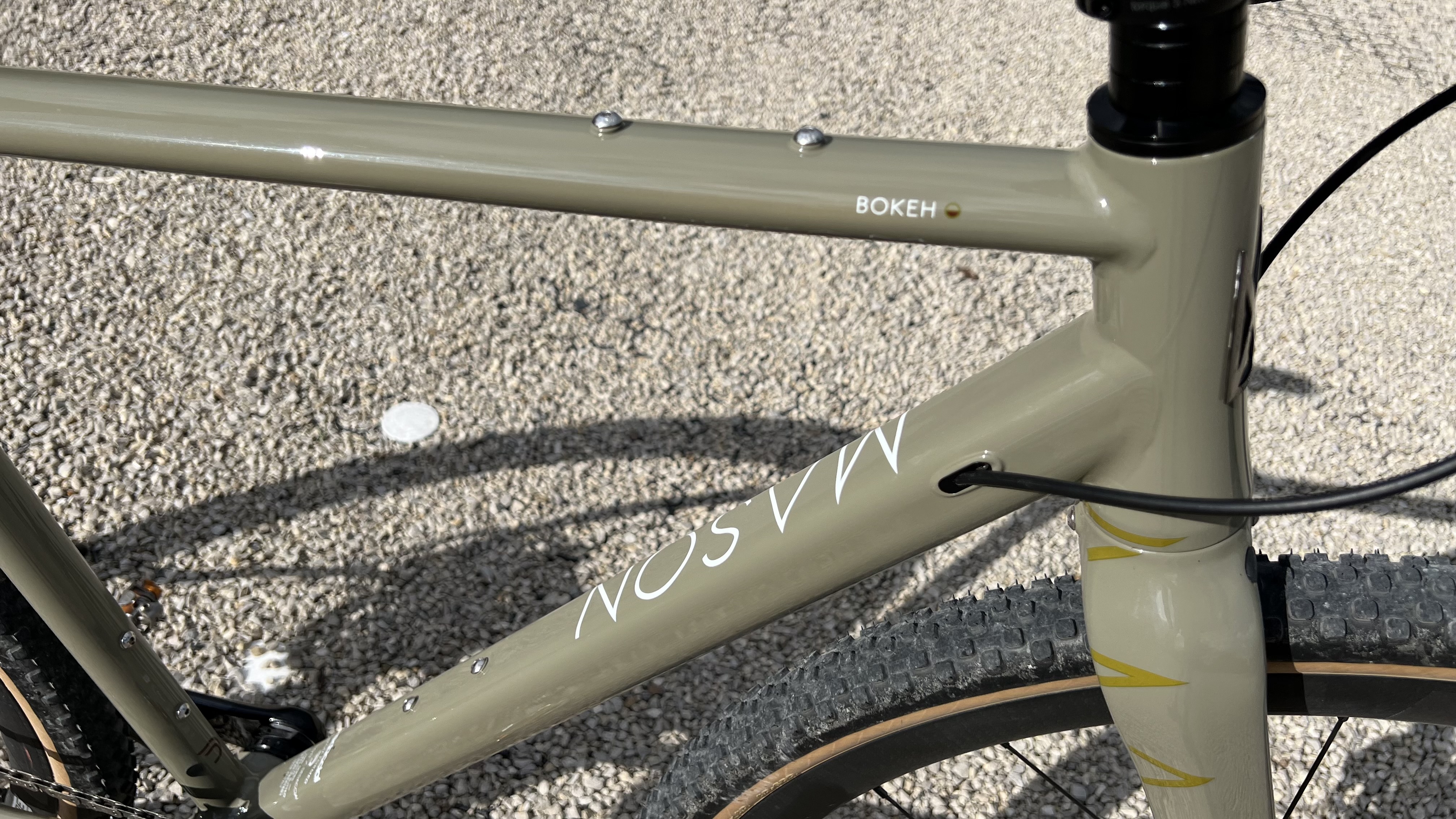
Mason’s super neat ‘MultiPort’ inserts allow you to open or seal the frame holes depending what shifting setup you’re running and the Bokeh still has apertures for Di2 or conventional front mechs. Dynamo light routing moves up to the top tube for neater lines though and you get bolted mounts for a ‘Fuel Tank’ bag too. Rear rack and fender mounts include a seat tube securing point and there are two conventional bottle mounts inside the main triangle and another under the belly. That’s less than Mason’s Exposure and InSearchOf bikes which get triple bolts above and under their downtubes but still enough for most riders and rides. Especially as you now get the same custom carbon RangeFinder AS fork as the Exposure – which has three 30kg rated mounts on each side, as well as low rider rack mounts and very neat internal routing for front brake and dynamo routing.
Front and rear axles sit in replaceable threaded mounts and Mason’s pull out SwitchLever has a built in 6mm hex head for undoing the rear axle too. Other neat fork details include a moulded carbon seat for the headset bearing which strengthens the fork, guarantees bearing alignment and minimises the frame to fork gap. The only potential issue going forward is the lack of a SRAM style UDH hanger which we’re starting to see on some gravel bikes now. I can’t see why Mason couldn’t create some kind of bolt on retrofit option if that tech does become dominant like has now in MTB.
Speaking of MTB, while a lot of gravel bikes are trending in a longer, slacker direction with their geometry, the new Bokeh still takes it’s MTB inspiration from the ‘90s with the 54cm bike I tested running a 71-degree head angle and 73-degree seat angle. Headtubes are relatively short too (145mm on the 54cm) with an almost horizontal top tube keeping aesthetics relatively trad.
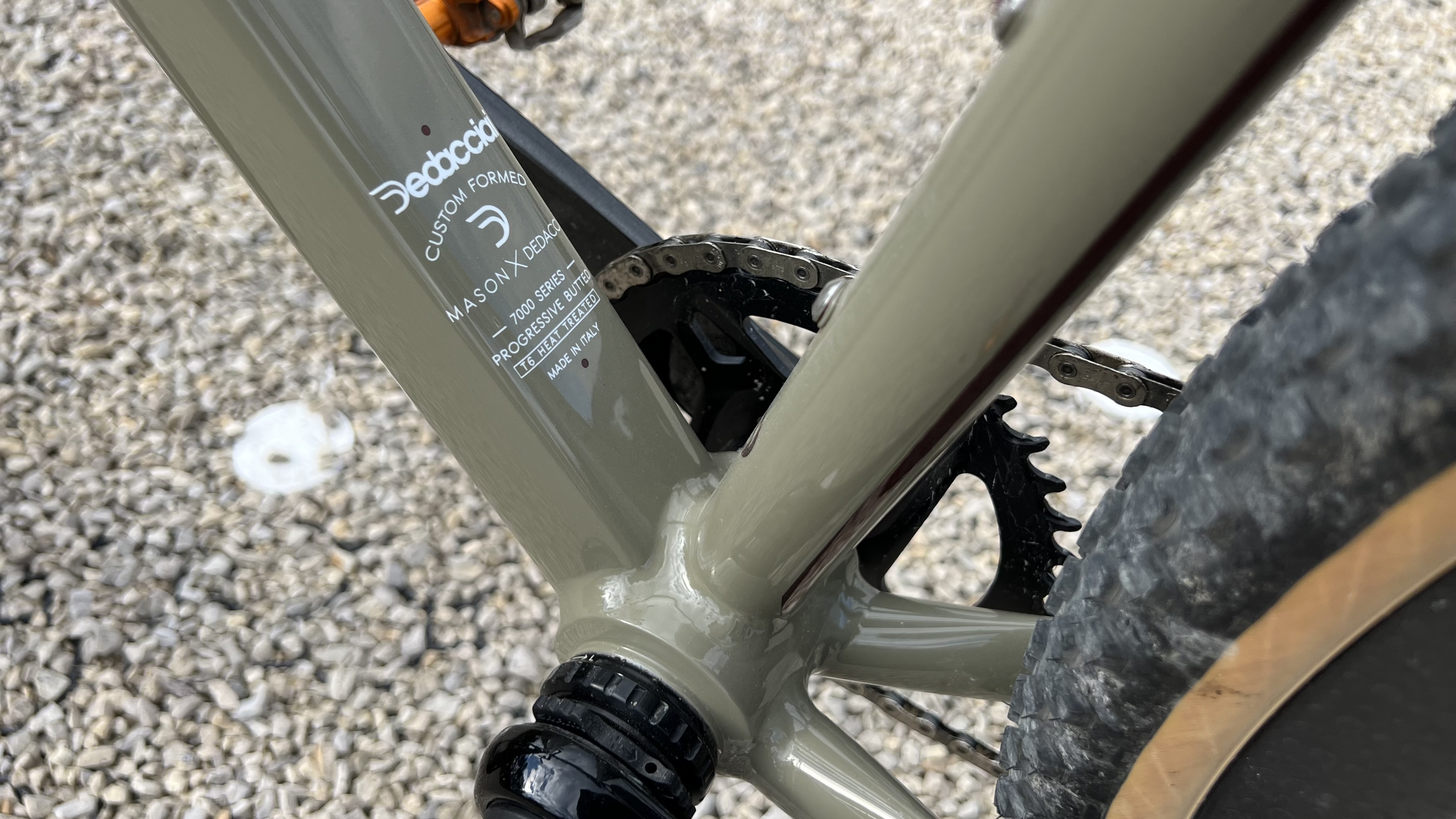
Components and build
Bokeh builds start with GRX 800 at £3,280, then there’s SRAM Rival XPLR at £3,550, Campagnolo Ekar at £3,655, GRX Di2 at £4,100, or the SRAM Force XPLR version tested here for the same price.
As you’d expect that gets you a full set of SRAM’s latest wireless gravel group including a 10-44 tooth cassette. My sample even came with a Reverb AXS 50mm dropper/suspension seatpost, though stock bikes will come with a fixed length Mason carbon post. They’ll also come with Hunt 650B wheels and Vittoria XC MTB tires as standard, but you can choose from a range of wheels and tires including the excellent Zipp 303 Firecrest and Rene Herse Hurricane Ridge 700 x 42c set up I rode. My test bike also had 160 / 140mm rotors for the SRAM Force brakes, but the Bokeh can now take 180 / 160mm discs to handle heavier loads without stress.
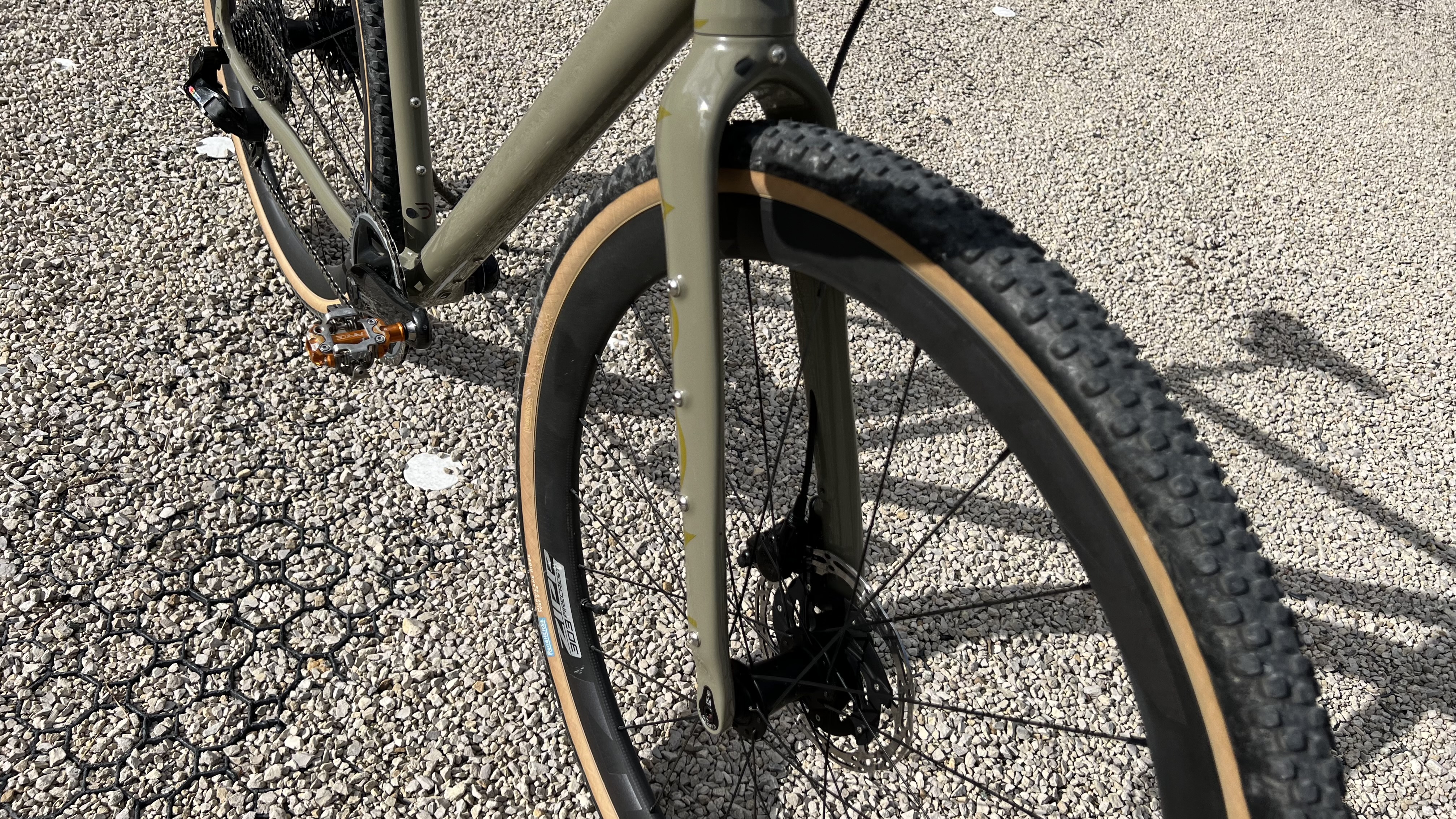
Ride, handling and performance
Gravel bikes are by definition a compromise between retaining residual drop bar speed while edging towards mountain bike control levels. What’s always set the Bokeh apart though is that it never feels like a compromise, and the V3 feels as ‘instantly right’ as ever. Resisting the trend to go slacker with steering or fatter with tires keeps the bright eyed vitality and agility that’s always made it a joy to race and chase along twisty singletrack on. It also keeps it alert and vital enough to play fast and loose on the road when I switched 30mm Continental slicks and a rigid Zipp post on to it (losing just shy of a kg in weight in the process). Lower front ends encourage the hunt as you hunker down out of the wind or naturally load the front tire more into turns.
The faster handling suits the frame feel perfectly too. While it’s remarkably forgiving and floated for an alloy bike, there’s none of the slight delay or softness through bars or pedals that you get with steel, or the muted ‘meh’ feel that you get with a lot of carbon. Every input you make is keenly positive, prompt and affirming without ever straying into punishing or painful. At 1.69kg for the 54cm frame its mid price carbon competitive and 700g lighter than the steel Exposure so it has a climbing and accelerating advantage on the scales too.
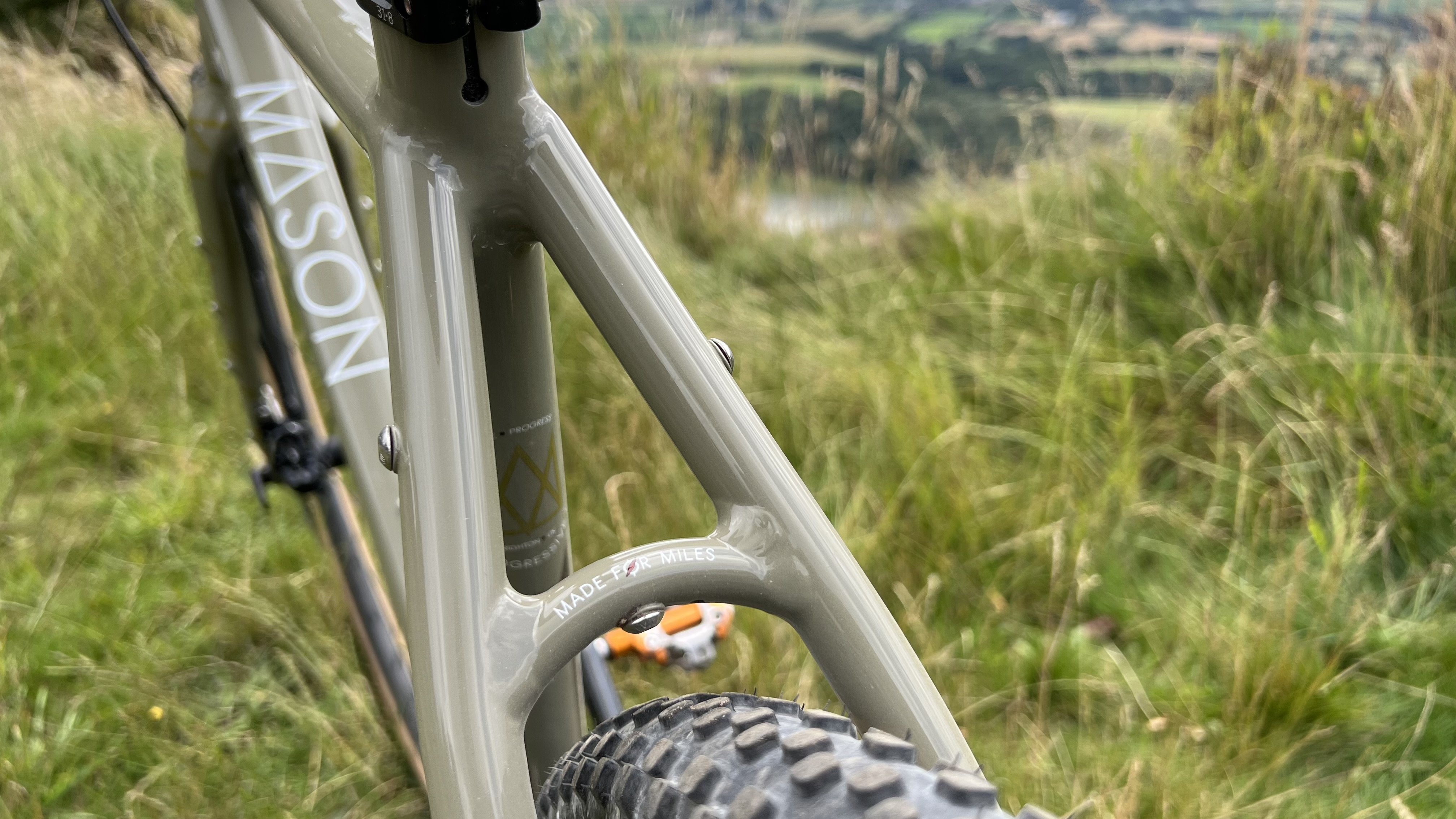
Obviously the steeper angles and keener feel won’t autopilot through technical sections as forgivingly as bikes with a head angle starting with a six. That means you need your wits about you when things get wild, but the sense of exhilaration is intoxicating. The Mason consistently delighted me with what it skimmed, skipped and floated through with ease compared to the blunter, thumping awkwardness or clattering hysteria of a lot of gravel bikes. The 25mm internal Firecrest wheels, Rene Herse tires and Ritchey bars slide a luxury carpet of impact isolation and fast but surefooted control under the Bokeh that you might not find with other tire / wheel choices too. I also got some benefit from the Reverb dropped post when things got really fast and/or steep, although I’d either go for a longer stroke version or more likely to stick with a standard post and save 400g of weight. Especially as the life was comfortable enough in the Fizik saddle that I rarely used the awkward to access ‘suspension post’ function.
That would also give full seatpack fit options on a bike that made its ultra race winning, FKT setting ‘Fast, Far’ pedigree very clear even in the short time I had it.
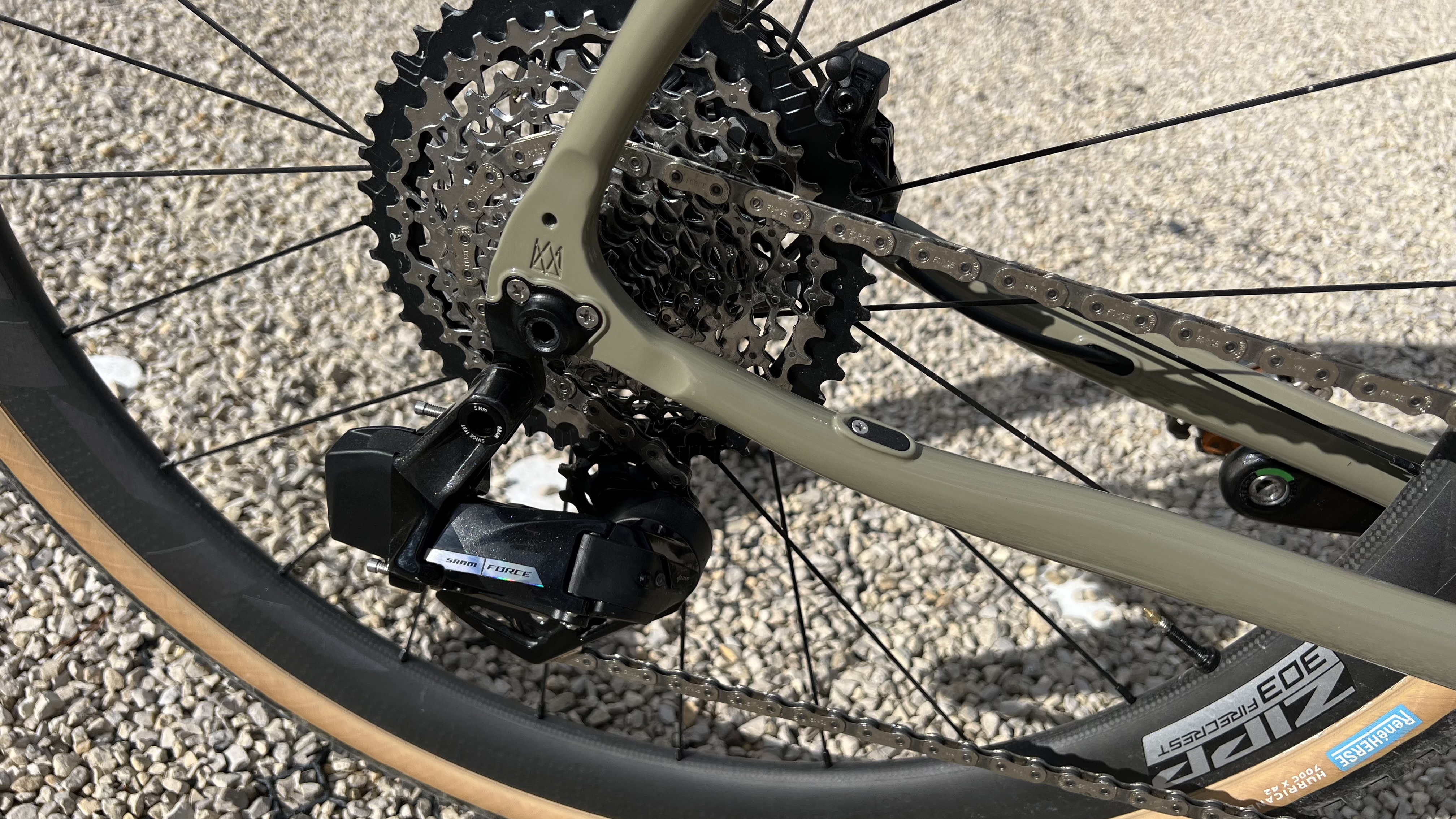
Verdict
There’s no escaping the fact you can get a really good alloy bike from brands like Sonder for the same price of the Bokeh frame or even or even Voodoo and Decathlon/Triban for considerably less. The practical and aesthetic detailing Dom and his team at Mason deliver are a match for the most exotic boutique brands though. More importantly you could buy a carbon bike that doesn’t ride with anything like the vitality, subtlety and joy of the Bokeh for far more money and it’s cheaper and significantly lighter than comparable steel bikes too.
The way the agile, hunter handling syncs with the alert frame feel is endlessly enjoyable from road to the rough and the increased cargo capacity means it’s essentially endless in terms of potential ride range too. And while I probably wouldn’t bother with the dropper post on this bike, the rest of the spec here is superbly curated and Mason are always happy with customers to provide as many options as possible.
To sum it up simply, the original bike I thought was one of the most perfect I’d ridden back in 2016, has left me with the same visceral, versatile, beautifully crafted and passionately curated vibes this time round too.
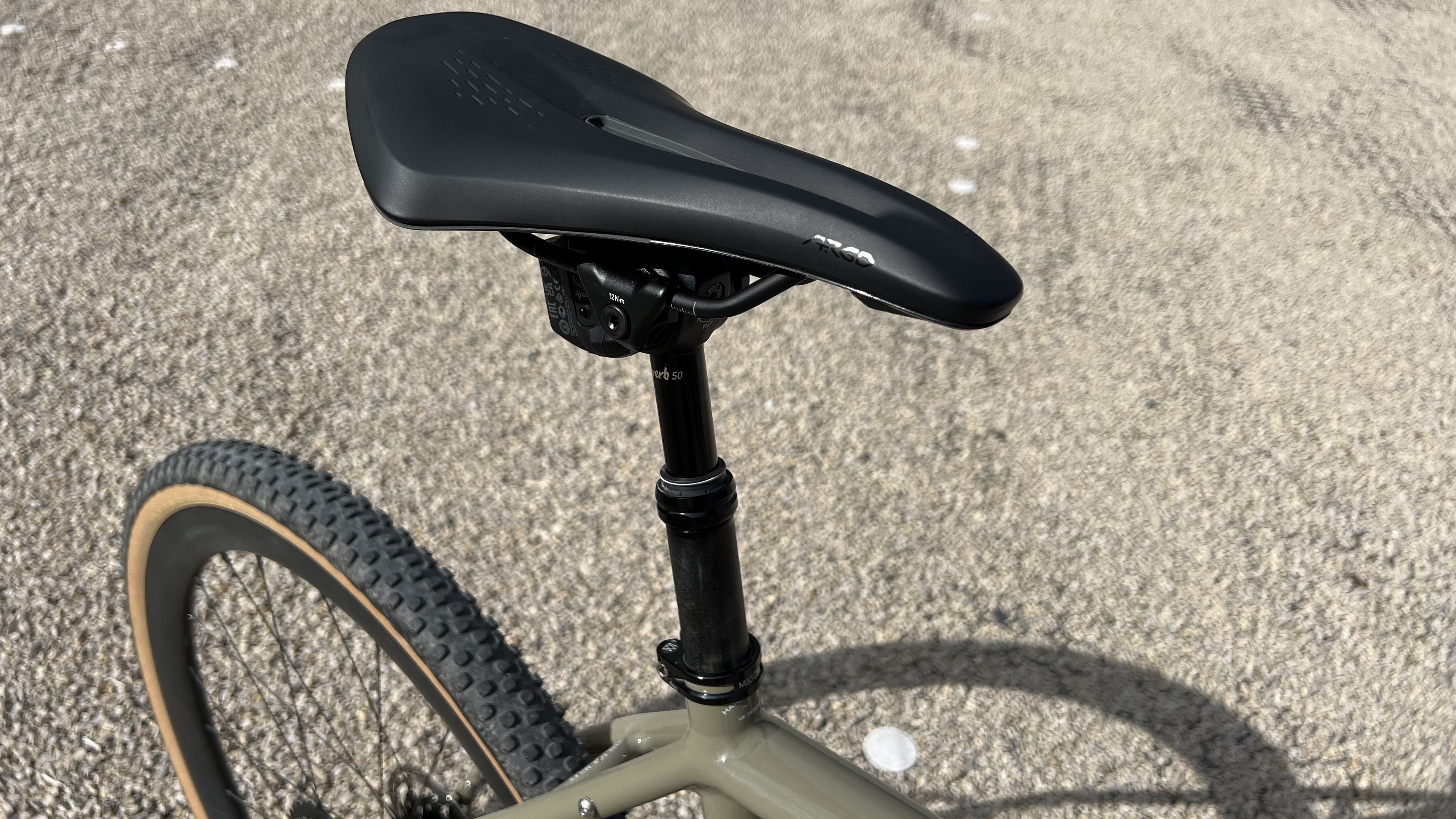
Tech specs: Mason Bokeh V3
- Discipline: Gravel/Adventure/Touring/Road
- RRP: SRAM Force XPLR Bike £4,100, frameset £1,450
- Head angle: 71 degrees
- Frame material: Custom Dedacciai 7000 series, T6 heat treated alloy
- Fork material: Mason RangeFinder AS full carbon fibre monocoque
- Size: 48, 50, 52, 54, 56 (tested) 58, 60 and 62cm
- Weight: 9.24kg (size 54cm) with Rene Herse Hurricane Ridge tires and Zipp Firecrest 303 wheels.
- Wheel size: 700 x 45mm or 650 x 55mm
- Groupset: SRAM Force AXS XPLR
- Crankset: SRAM Force 42T
- Cassette: SRAM Force 10-44T
- Tires: Rene Herse Hurricane Ridge 700 x 42mm
- Wheels: Zipp Firecrest 303
- Brakes: SRAM Force AXS hydraulic disc brakes with 160/140mm rotors.
- Bar/stem: Ritchey Venture Max carbon 440mm bar and Deda Superzero 90mm stem
- Seatpost: RockShox Reverb AXS XPLR 50mm dropper/suspension post
- Saddle: Fizik Terra Argo X5 saddle
- Available from: masoncycles.cc
